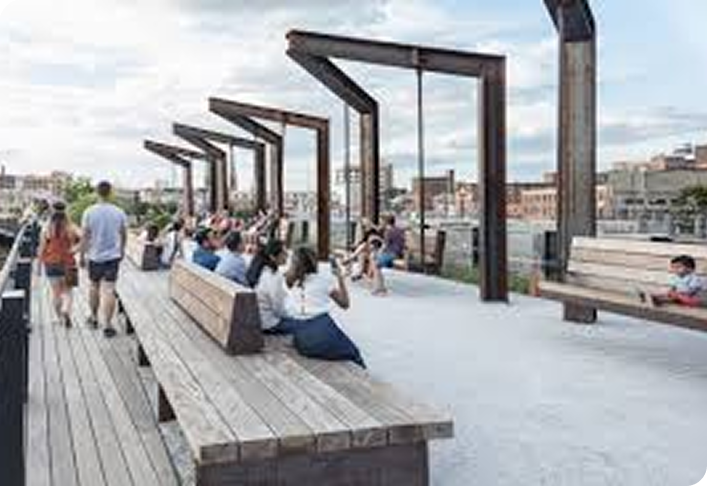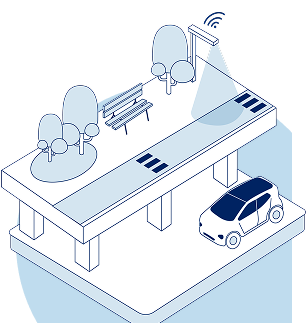
Data & Privacy Pilot
Project overview
UrbanSense partnered with Friends of the Rail Park and the Knight Foundation to develop a technology and public Wi-Fi strategy that supports both current and future phases of the Rail Park.
Client:
Location: New York, NY & Toronto, ON
Services:
Segment: Private
Industry:
Background
As the Rail Park evolves, integrating technology in a way that aligns with its mission and advocacy work is essential. UrbanSense provided expertise in data governance, public Wi-Fi connectivity, and urban technology planning to establish a solid foundation for future digital infrastructure. The initiative created a policy framework to ensure responsible data usage while enhancing visitor experiences.
UrbanSense Approach
UrbanSense supported the Rail Park’s technology and data strategy by:
Public Wi-Fi Analysis: Conducted a comprehensive review of implementation strategies and data privacy best practices.
Data Use Strategy: Developed an actionable plan for responsible data use aligned with the Park’s long-term vision.
Tech Advisory Committee: Established the Rail Park Tech Advisory Committee, uniting experts in urban planning, public spaces, and technology to guide decision-making.
Outcomes
The initiative resulted in a structured policy framework to guide the Rail Park’s future technology efforts, ensuring responsible data usage while enhancing visitor connectivity. It provided a clear roadmap for implementing public Wi-Fi with privacy and security at its core and fostered stronger collaboration between local experts, ensuring community-driven, sustainable solutions for the Park’s digital future

See Also:
NYC Proptech Pilot
UrbanSense partnered with JLL Technologies (JLLT) and the City of New York to extend the benefits of proptech—technologies that transform how we interact with and operate real estate—to underserved properties within the City’s 491 million square foot real estate portfolio.
INSIGHTS
Innovative NYC Pilot Aims to Bring Proptech to All
From blueprints to buildings, PropTech is reshaping how real estate and infrastructure projects are conceived and executed. This article explores how digital tools are streamlining project management, boosting transparency, and bridging communication between public and private stakeholders — all while pushing the boundaries of innovation in urban development.







